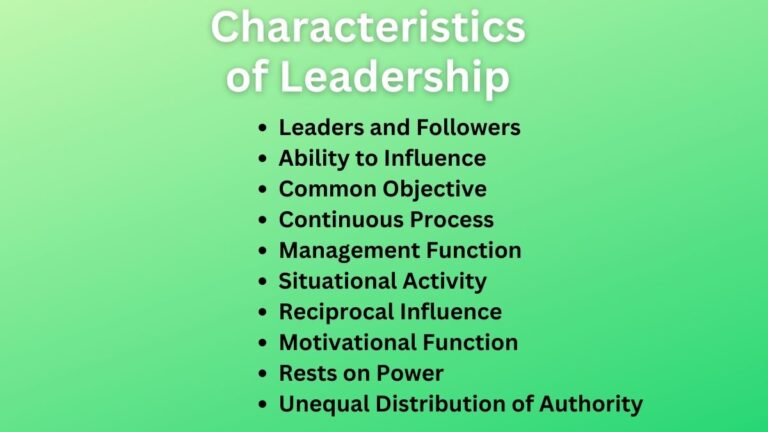What is Michigan Leadership Studies? Definition and Findings
What is Michigan Leadership Studies?
The Michigan Leadership Studies is a behavioral theory of leadership that was studied at the University of Michigan in the 1950s. The study was led by the American Social Psychologist, Rensis Likert, who conducted a series of research programs with a group of researchers to find out the leader’s behavior.
The main objective of the study was to find out the principles and types of leadership styles that lead to greater productivity and enhanced job satisfaction among workers. They described leadership behaviors in two dimensions – employee-oriented and production-oriented.
Employee-Oriented
Leaders with an employee-oriented focus on interpersonal relationships and accept the individual differences in the groups. Such leaders care about the needs of followers or subordinates to satisfy them the most.
The behavior of employee-oriented leaders:
- They establish good human relations with the follower employees.
- They are concerned for the rights and welfare of subordinates.
- They pay due to concern for motivating employees to achieve organizational goals.
Related: Managerial Grid Leadership
Employee-oriented leaders believe the ultimate and best way to get work done and achieve the desired company’s goal is through commitment and satisfaction of employees. They consider the employee’s strengths and weaknesses and expect the related tasks to do by them.
Production-Oriented
Production-oriented leaders emphasize the technical and task aspects of the job. Such leaders care about output rather than employee satisfaction.
Related: What is Production Concept?
The behavior production oriented leaders:
- They focus on technical aspects i.e. know-how and procedures of the job.
- They focus on supervising for standard output of the job to be done.
- They make production output the performance standard.
- They follow negative motivation tools to motivate employees.
Such production-oriented leaders view employees as the means to get the job done, they do not concern about the feelings and motivation of employees. As such, such leaders fail to increase employee job satisfaction in the organization.
In Conclusion…
The group of Rensis Likert concluded that employee-oriented leaders can result in high group productivity and higher job satisfaction, whereas, production-oriented leaders in low productivity and low job satisfaction.
Read Next: Ohio State Leadership Studies
Sajan Kushmi is a content writer with more than 4 years of experience. He holds BIM Degree. He write on the topics related to Management, Marketing, and Entrepreneurship.






